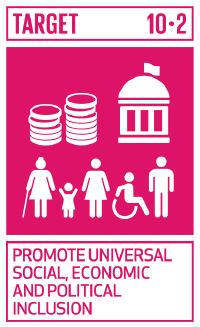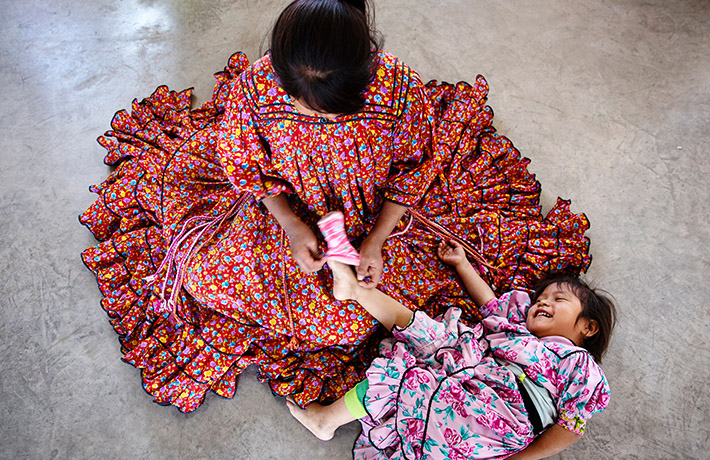More inclusive societies
Societal exclusion and isolation due to hygiene and health challenges is a global problem that can happen to anyone, anywhere and at any time in life. The needs of the marginalized, the vulnerable, and the discriminated in hygiene and health related decision-making is often overlooked. Stigmatization and taboos are other obstacles to achieve more inclusive societies. Two common and natural conditions that cause exclusion are menstruation and incontinence, which affect the everyday life of billions of people all around the world. There are however, initiatives and solutions to break the obstacles and barriers.
Hygiene-related barriers can differ in different parts of the world, but the outcome of exclusion is remarkably similar. Typical barriers include environmental barriers, social factors and fears of sexual violence that can contribute to sanitation-related psychosocial stress for individuals.26 The social and psychological impacts of hygiene and health-related exclusion are huge. According to the United Nations, half the world lacks access to essential health services, such as family planning and infant immunization.27 Even in some countries with good healthcare provision, many people lack access due to their inability to afford healthcare or because of cultural taboos.

SDG Target 10.2: By 2030, empower and promote the social, economic and political inclusion of all, irrespective of age, sex, disability, race, ethnicity, origin, religion or economic or other status.
Empower women and challenge social norms
WaterAid and its partners are making real progress on changing behaviors and social norms by empowering women and the marginalized.
Global hygiene and health initiatives, together with water and sanitation efforts, provide a platform to empower women and strengthen gender equality outcomes. WaterAid, together with colleagues and local partners, has made some crucial water, sanitation and hygiene (WASH) and gender achievements. This has included testing integrated menstrual health solutions with sexual and reproductive health and rights actors; encouraging men to do their share of WASH-related household labor, and increasing women’s leadership in WASH governance systems. To move from these successes to achieving 2030 hygiene, WASH and gender aspirations, WaterAid will continue to strive towards gender transformative practice, building evidence of what works, and influencing policy makers to create space and listen to women and other marginalized voices.

26 India Water Portal. Poor sanitation causes psychosocial stress among women. Visit source
27 UN News. Half the world lacks access to essential health services – UN-backed report. Visit source